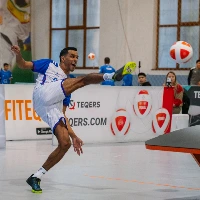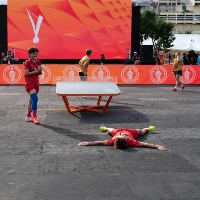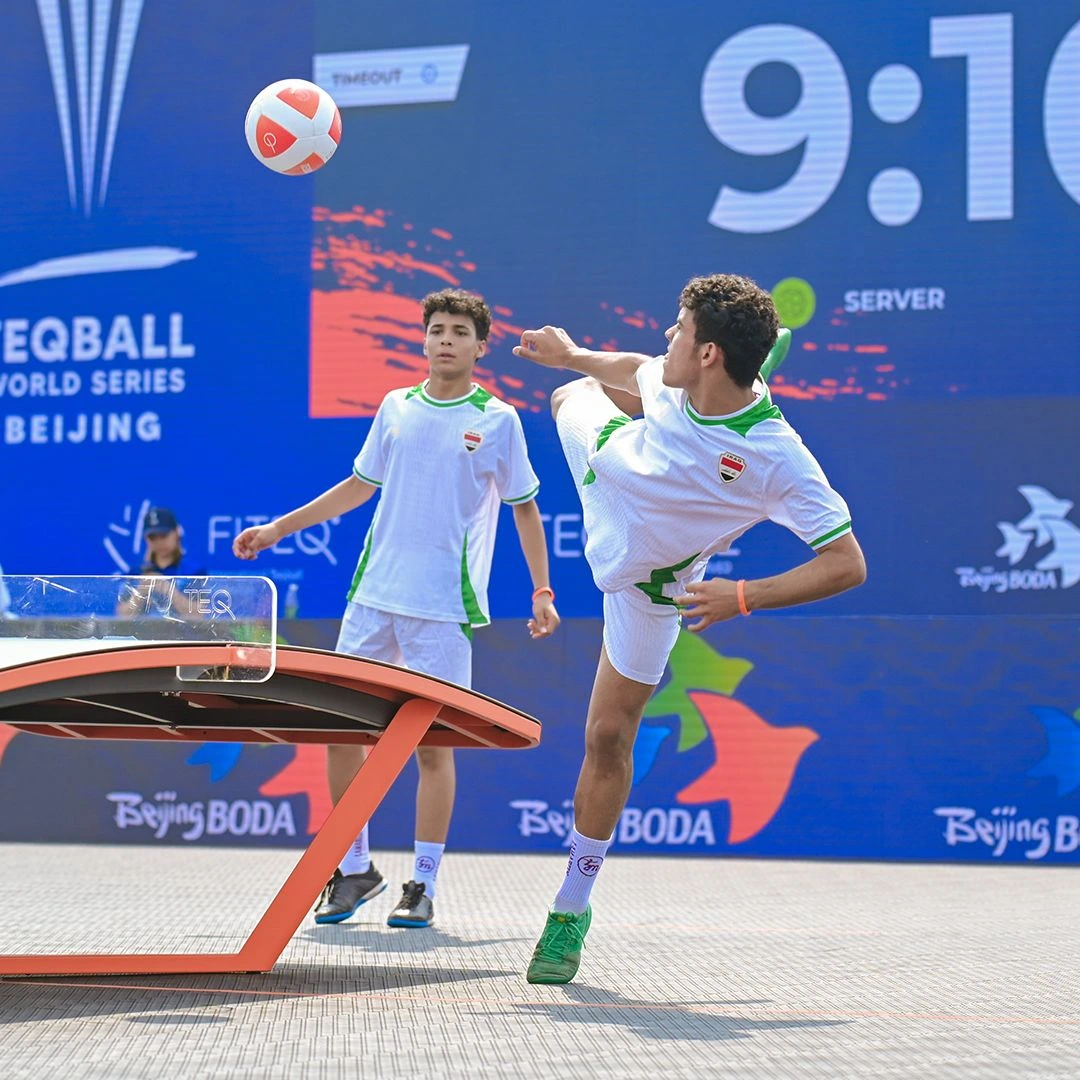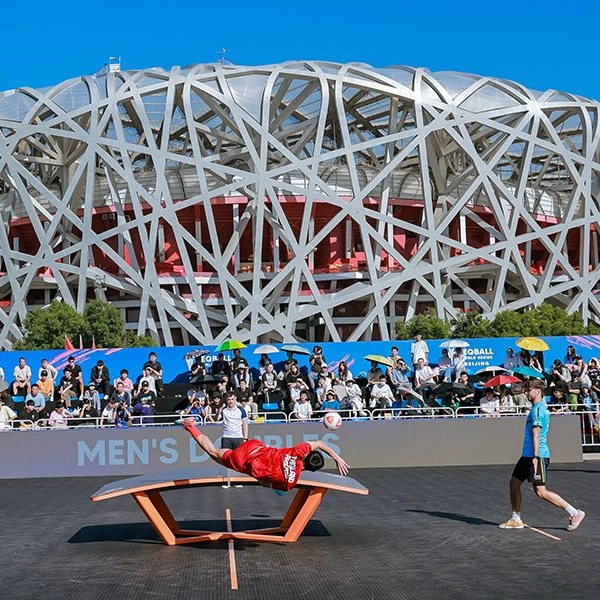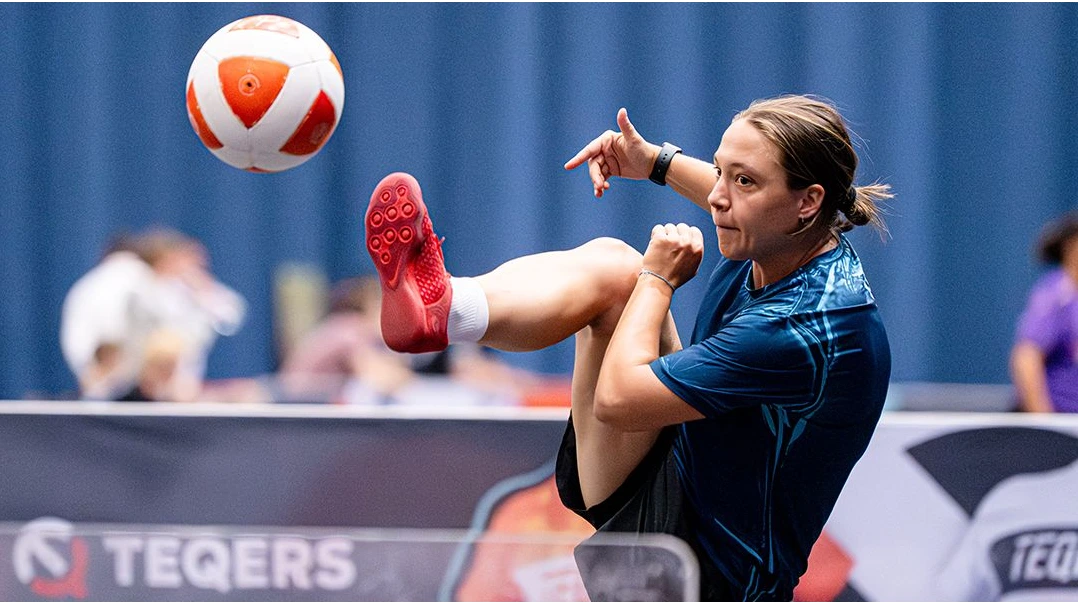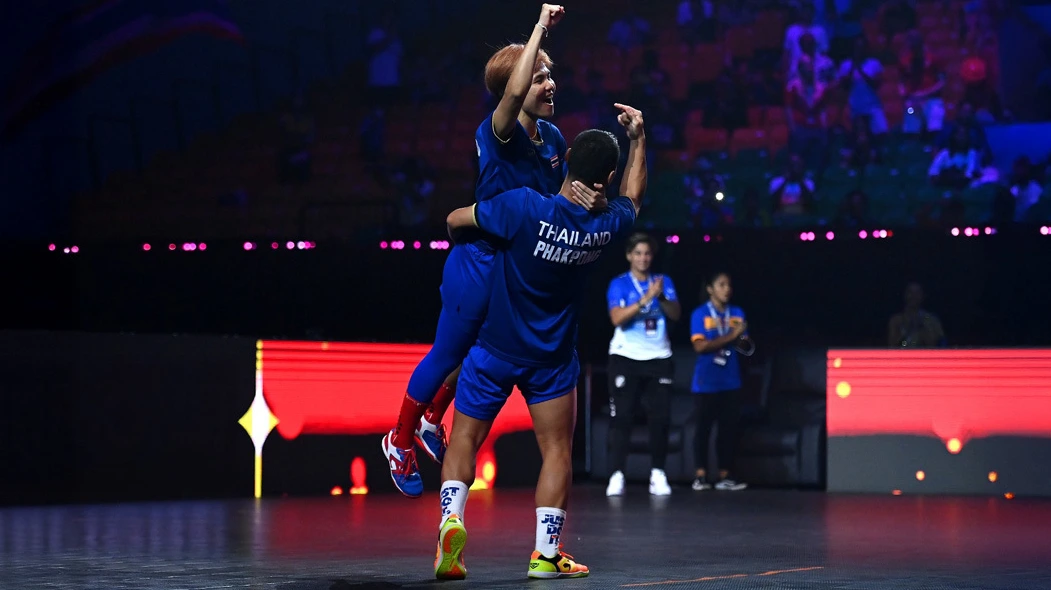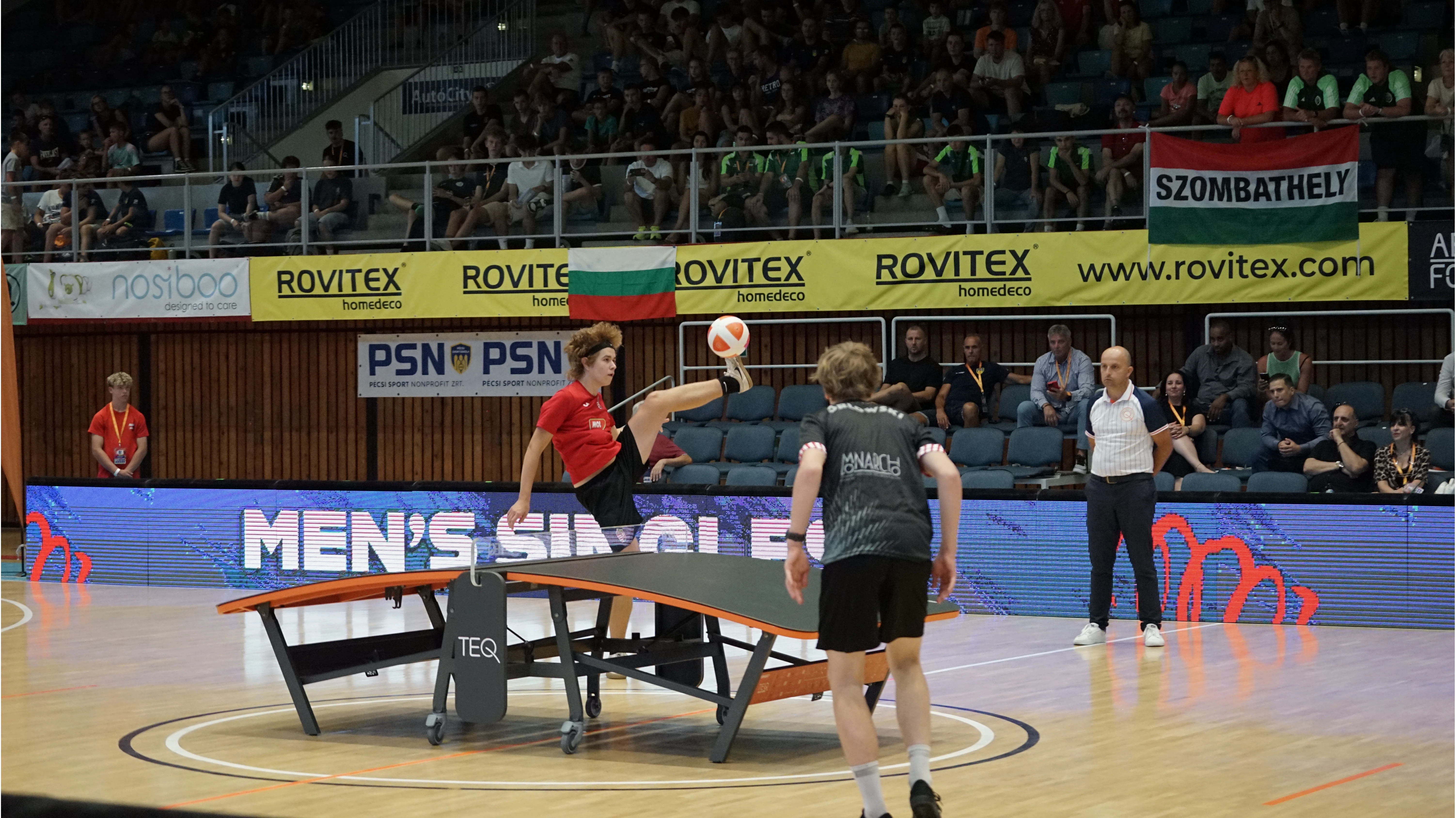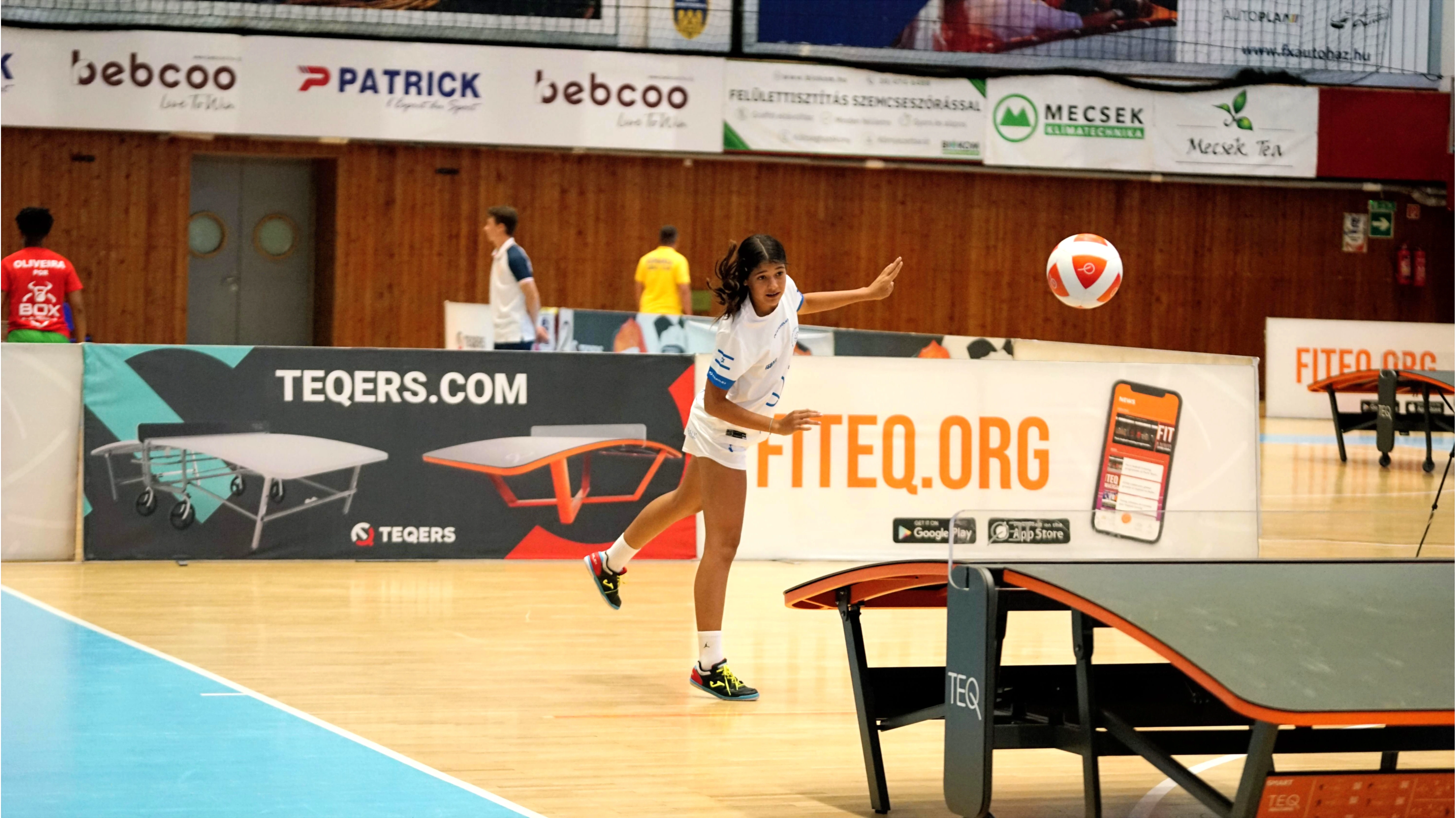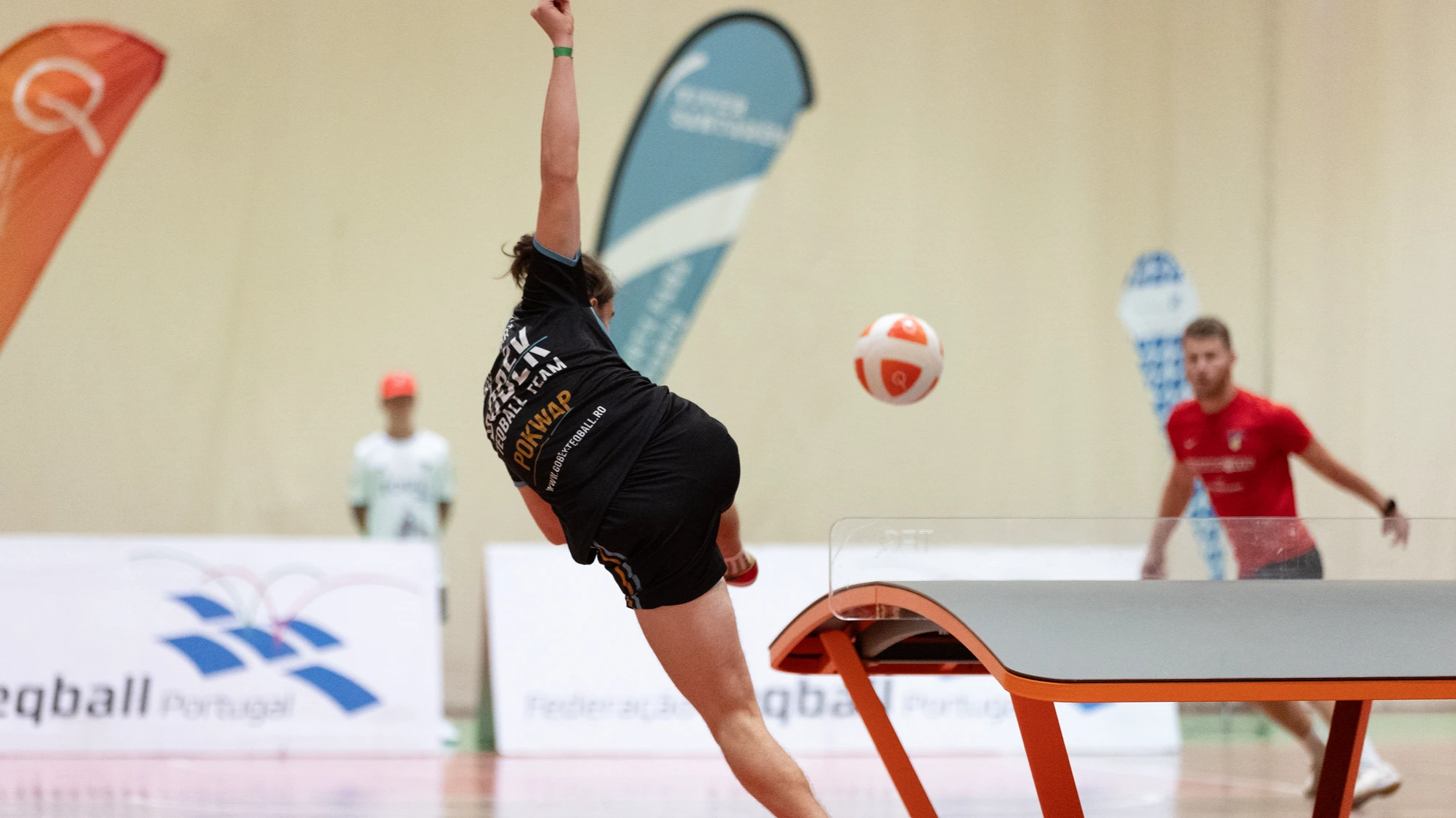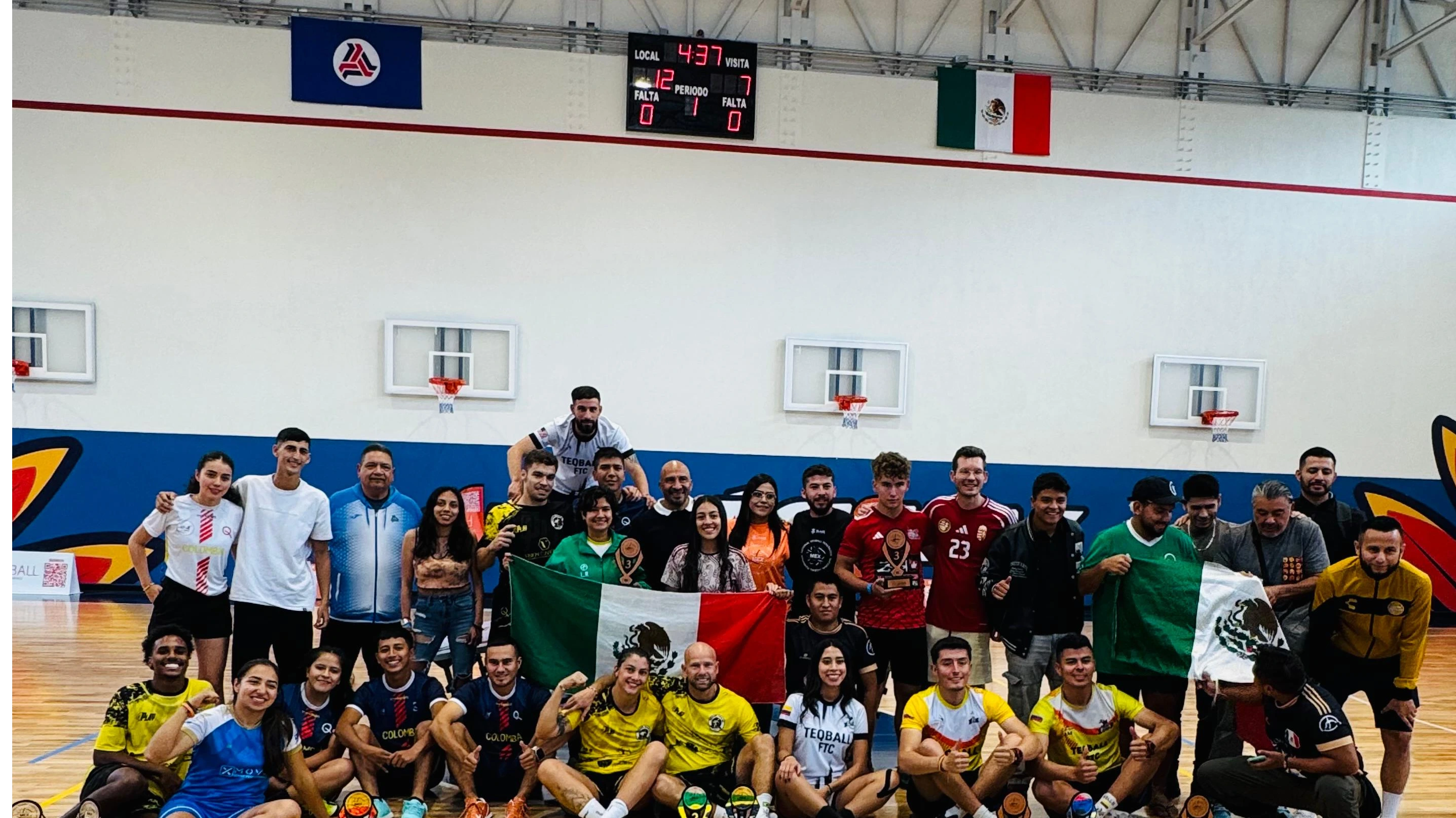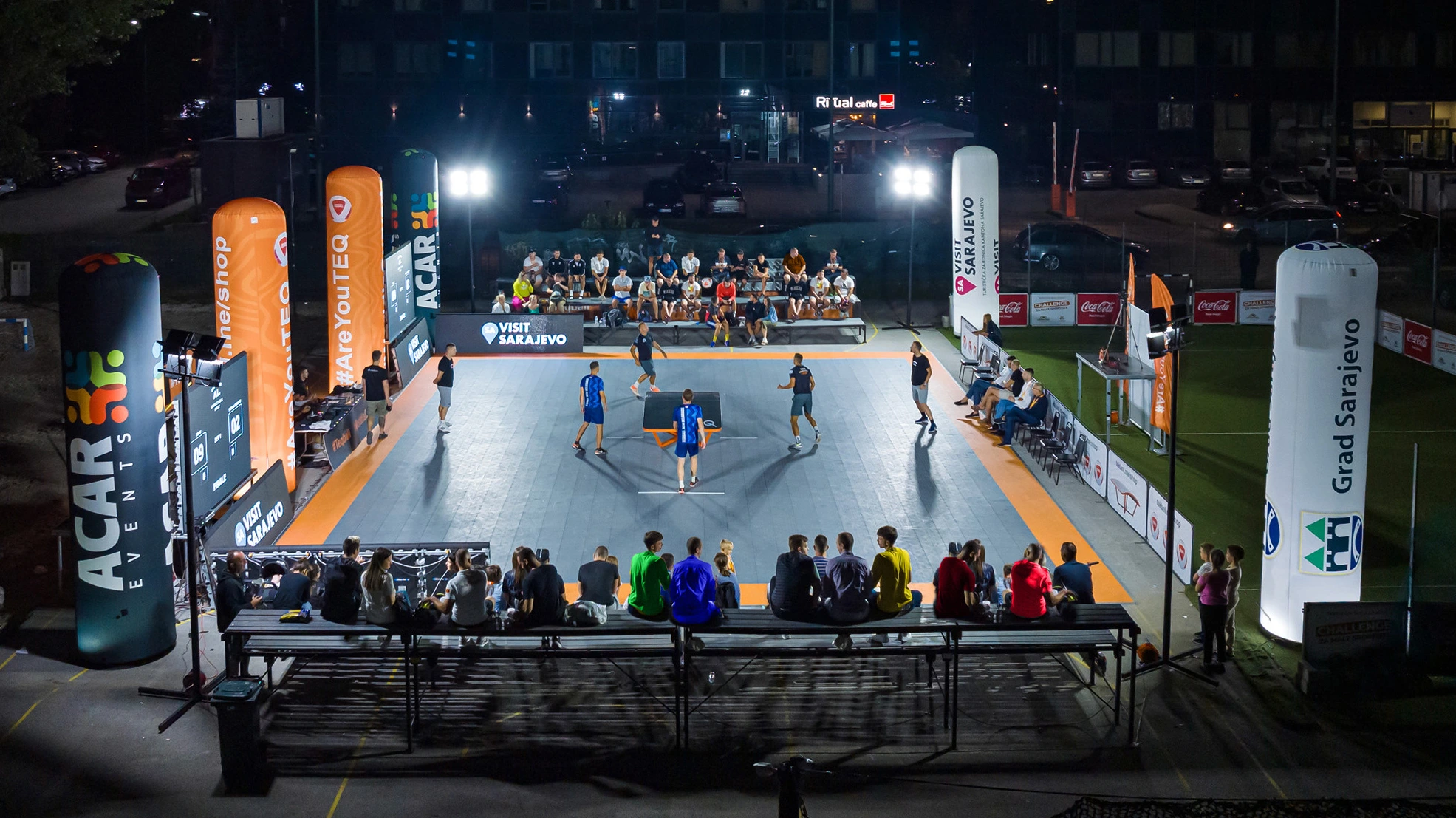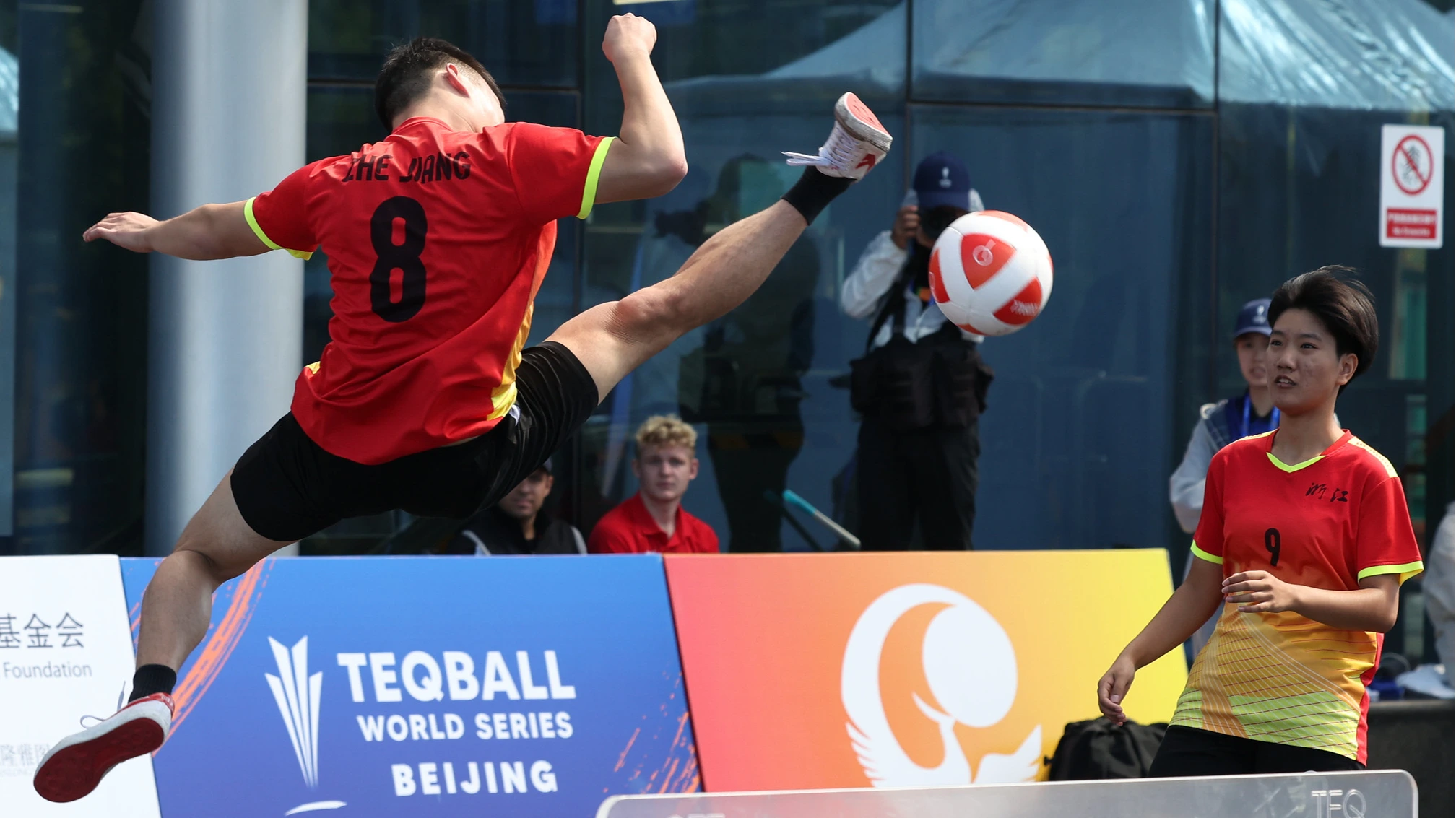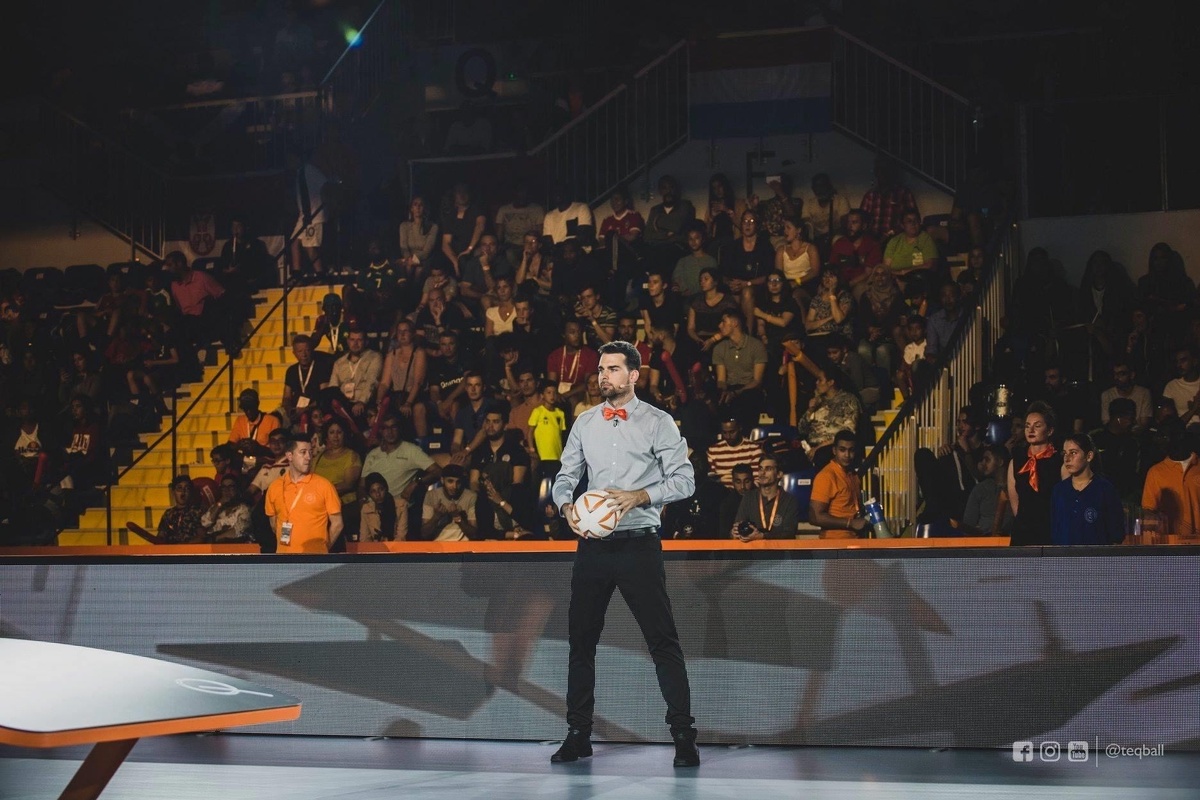
Interview: Martin Gorman
INSIDE TEQBALL- STORIES FROM THE TEQBALL WORLD
Martin Gorman is one of the coolest heads in teqball. As the sport’s leading referee, he is regularly tasked with making the all-important decisions on the biggest stage. Gorman started his teqball journey as a player, competing in the inaugural World Championships in Budapest in 2017. A year on, he was officiating at FITEQ’s flagship event as the Main Referee for the final games. He quickly became the number one referee in the sport and was once again the Main Referee for the final games in the 2019 Teqball World Championships. In this interview, Gorman shares how he reached this point and what helps him keep his composure when refereeing teqball’s biggest games.
Maybe just a few people know that you participated in the 1st World Championships in 2017 as a player representing England in the doubles category. When and how did you learn about teqball and why did you decide to dig deeper into this sport at a very early stage?
My first memory of teqball comes from 2016. I had heard about the sport prior to that and there was an acquaintance of mine working with the founders of the sport. Then in 2016, a tournament was organised at my university. I entered and despite getting knocked out in the group stages, the whole experience somehow just got hold of me, from the game itself, to the atmosphere of such an event, to the way the more experienced players were playing. I contacted my acquaintance shortly afterwards and asked him about opportunities to work with the founders of the sport. My thinking was that this is a new thing that interests me and has lots of potential, so joining early on is worth a shot.
At what point did you decide to transition from being an athlete to becoming a teqball referee?
In the beginning, there were lots of people involved in a variety of roles. For example, besides refereeing, I also played at events and installed tables. Then, when the sport began to expand, the different aspects of teqball started branching off. Being a professional teqball athlete quickly became a full time job and I did not think it was one I would have been able to maintain. In 2018, when the whole referee system was created, I was contacted to see whether I would like to be a professional referee. Despite having never been a referee in any other sport, after considering the advantages, as well as the responsibilities, I accepted.
Since joining the teqball family, the International Federation of Teqball (FITEQ) has been established and the sport has spread all across the world. Did you expect this global awareness and development of this sport at the beginning?
Was I expecting it? Certainly! What I was surprised at was the curve of its growth. Since the very start, teqball was constantly progressing at a steady rate. Then around 2018, it took on a steeper trajectory and has become more and more well-known around the world. What I didn’t expect when I joined the teqball family, was that I would soon be receiving screenshots from my friends of myself in advertisements as a teqball referee!
Your first huge challenge as a teqball referee was your selection as the Main Referee of the final games of the 2018 World Championships in Reims, France. Can you recall your feelings during the rehearsal and before the game?
As one of the more experienced referees, I knew that there was a good chance I would be selected for the finals beforehand, so I had time to prepare mentally. The biggest challenge was when they told me I will be equipped with a live microphone that could not be turned off during the game. So not only would I have to make quick decisions in front of thousands of people in the arena, and many more through broadcast, but I would also have to be saying them out loud. I had never done anything like this before and there were no examples to build upon. In normal circumstances, this would have made me nervous, but for some reason I wasn’t. I might have been inside, I don’t know, but the weight of responsibility just took over and I was so concentrated on the task at hand, that the only feeling during the rehearsal and the final games was that I must not let anybody down, especially myself.
How do you prepare mentally for a live broadcast match and what advice would you give to other referees who will be officiating live on TV?
I don’t have any kind of concrete routine, I just try to shut out all the white noise in order to be focused. I disconnect myself from the internet and just clear out my thoughts, some people would listen to music in such situations, but that doesn’t work for me. What also might seem weird to some is that I purposefully don’t eat too much before the games. It’s hard to give advice, because everybody is different. The main thing is not to be nervous and stay calm, which I know is easier said than done. Try to think about rational facts, for example accept that you will probably make mistakes, or at least have questionable decisions, so don’t ruminate on those. Also, if you are selected for the job, you are probably the best suited for it. Probably the best individual advice I can give, is “be in the zone”, whatever that means to you. Without that, I don’t think you can referee a game correctly under pressure.
As one of the most experienced teqball referee in the history of the sport, what advice would you give to new, prospective teqball referees?
Practice as much as you can. In the case of refereeing this means practicing the appliance of the rules, so officiate as many games as you can, as well as practicing refereeing under pressure. During games, be positive and don’t worry about what the players/coaches/fans say. You might make a mistake, but there’s no point in analysing it during the match. On the other hand, try analysing your performance after the game, request feedback so you can see what you need to improve in and be self-critical. You have to have confidence and a healthy amount of ego, otherwise you will not be able to function as a referee under pressure, even if you make 100% correct decisions in practice games.




